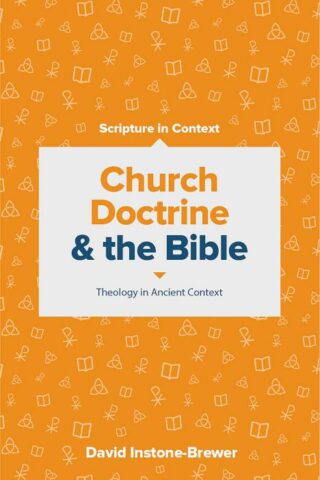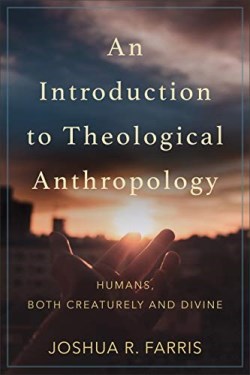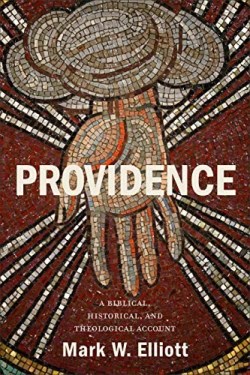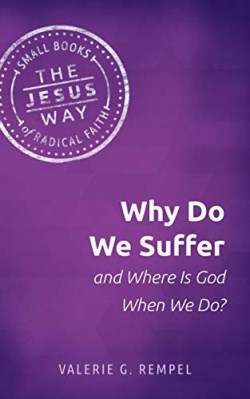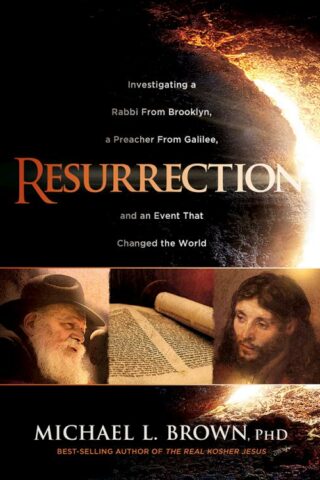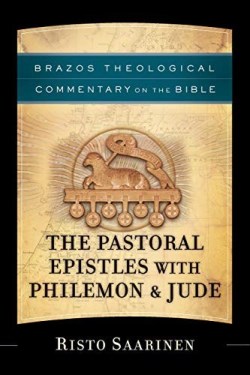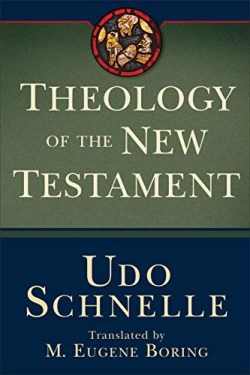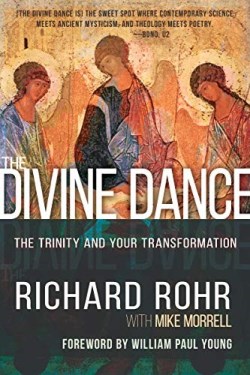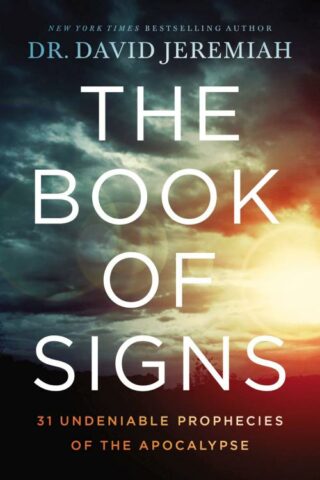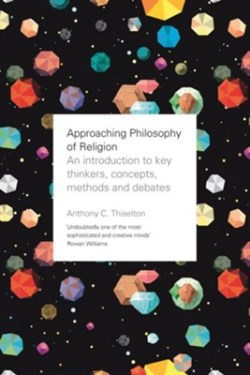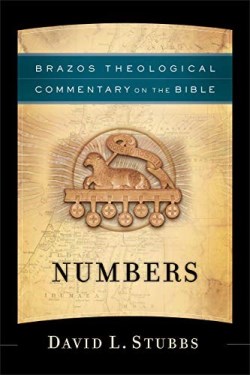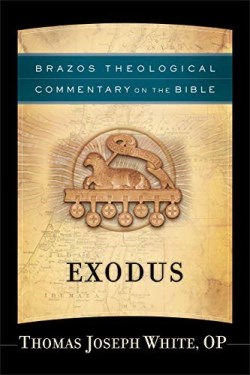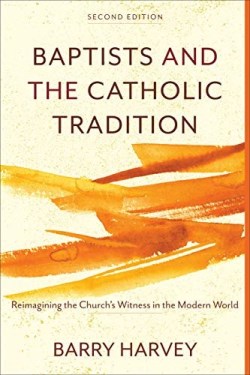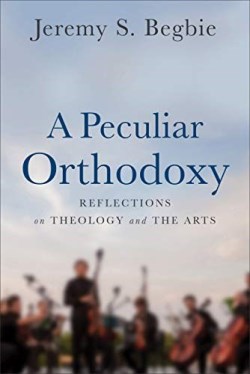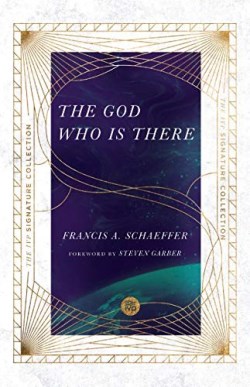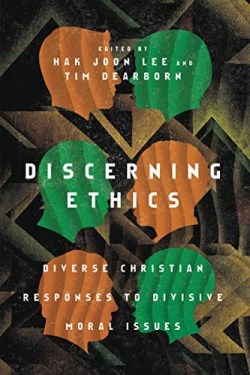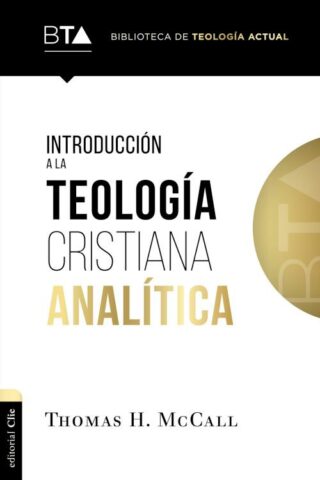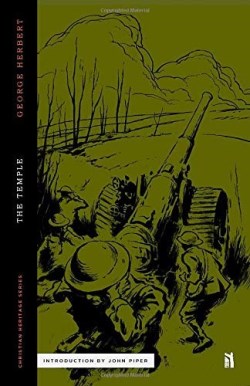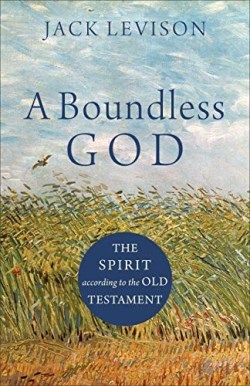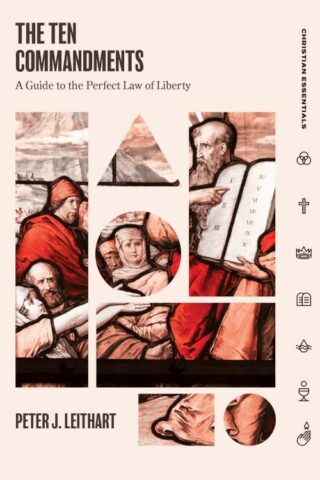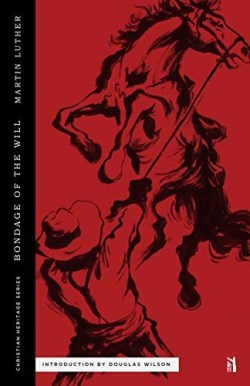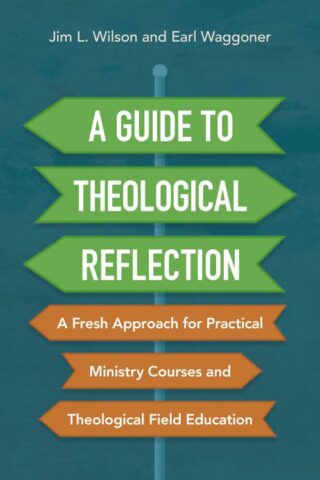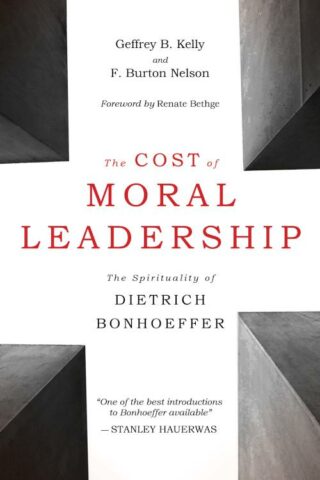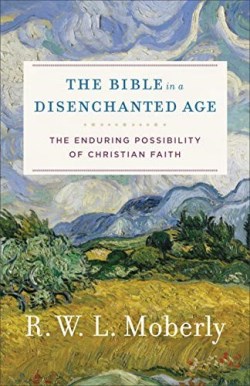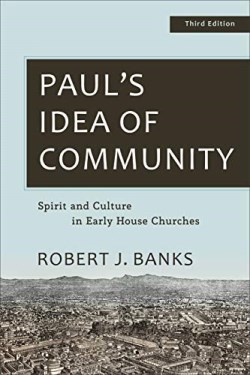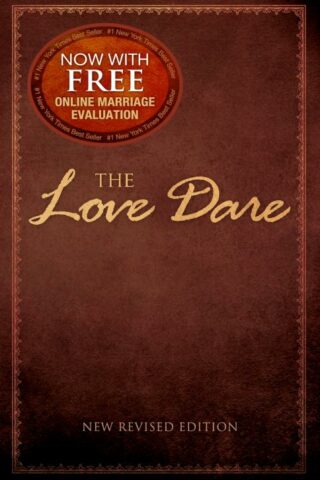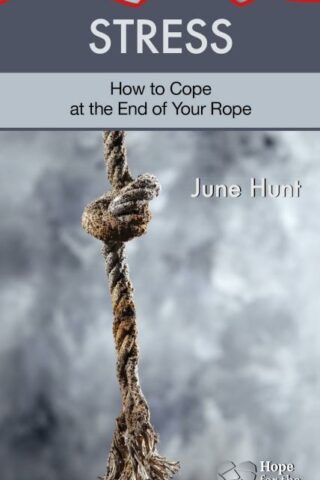Theology (Exegetical Historical Practical etc.)
Showing 401–450 of 4073 resultsSorted by latest
-
Salvation Not Purchased
$19.00Many ministers and faithful Christians instinctively recoil from “washed in the blood” theology, but they hesitate to discuss the subject. This book, by one of the world’s leading authorities on atonement doctrine, shows how the “purchased by the blood” idea is out of step with the teachings of Jesus, who said that God reaches the pure in heart without any sacrificial payment. The successors of Paul took the Apostle Paul’s sacrificial metaphors far too literally and turned them into an imagined “mechanics” of salvation in which God is “paid off.” Over the centuries, this manipulative idea has been the source of confusion and mischief, from the anti-Semitic superstitions of the Middle Ages, to the pedagogy of shame taught in many fundamentalist churches today. Our understanding of Christ will be enhanced if we can recover the original apostolic Christology, which was based on Christ as Creator and life-giver.
Add to cartin stock within 3-5 days of online purchase
-
Everyday Apologetics : Answering Common Objections To The Christian Faith
$19.99Objections to the Christian faith are not new. The ability to boldly proclaim the old faith to a post-Christian culture is.
In an era where access to objections and arguments is easier than ever, everyday Christians need to be prepared with strong, clear responses. In Everyday Apologetics, readers will be equipped with answers to some of Christianity’s most difficult objections: Why is the God of the Old Testament so violent? Are science and faith in fundamental conflict with one another? The contributors take up these questions, and more, helping Christians be strengthened in their faith, while also providing powerful answers to opponents of the Christian faith.
With a clear, inviting, winsome style, Everyday Apologetics is for everyone: Christians, skeptics, seekers, and everyone in between.
Add to cartin stock within 3-5 days of online purchase
-
Plundering Eden : A Subversive Christian Theology Of Creation And Ecology
$29.00Christian ecotheology runs the risk of making God himself a resource for human exploitation as a means to species survival. The world of climate change, soil depletion, and mass species extinction reveals a frightening conclusion–humans act as cosmic parasites. The problem is not with the world–talk of climate change blames the symptoms displayed by the victim–but with human epistemology. Humans are systematically incapable of rightly perceiving reality, and so must socially construct reality. The end of this epistemological problem is necessary ecological devastation by the development of civilization. In Plundering Eden, Wagenfuhr traces ecological problems to their root cause in the broken imagination, and argues that reconciliation with God the Creator through Jesus Christ is the only means to ecological healing through a renewed, kenotic imagination expressed in the creation of an alternate environment that reveals the kingdom of God–the ekklesia.
Add to cartin stock within 3-5 days of online purchase
-
Lutheran Theology : A Critical Introduction
$27.00In this book Lutheran theologian Paul Hinlicky makes the deeply conflicted origins of Lutheran theology fruitful for the future. Exploring this intellectual and spiritual tradition of thought through its major historical chapters, Hinlicky rejects essentialist projects, exposing the debilitating binaries such programs engender and perpetuate, to establish an authentic Luther-theology or Lutheran theology. Hinlicky excavates the ways that throughout a five-hundred-year tradition the legacy of Luther texts has been appropriated, retooled, subverted, or developed. Readers of this introduction will thus be critically equipped to make intellectually honest appropriations of the Luther legacy in the plurality of contemporary contexts in which this iteration of Christian theology will continue.
Add to cartin stock within 3-5 days of online purchase
-
Rare Jewel Of Christian Contentment
$21.58Jeremiah Burroughs reminds us that peace and calm in the midst of great troubles is a requirement for a Christian, and that learning contentment is the ABCs of the Christian life. But contentment does not come naturally. We excuse our stress, anxiety, and discouragement by claiming that we are just planning for the future and reacting normally to trials. But in this Puritan classic, Burroughs presents readers with the high calling to be content whatever the circumstances: “Christian contentment is that sweet, inward, quiet, gracious frame of spirit, which freely submits to and delights in God’s wise and fatherly disposal.”
“The devil loves to fish in troubled waters.” ~Jeremiah Burroughs
Add to cartin stock within 3-5 days of online purchase
-
Basics Of Christian Belief
$26.99This reader-friendly yet robust introduction to the Christian faith explores the essentials of Christianity and the impact they have on life, worldview, and witness. Written in an accessible and engaging voice for college-age readers, the book connects the biblical plotline, the Apostles’ Creed, the comparative distinctiveness of Christianity, and life’s big questions. The author shows how the Christian metanarrative speaks to questions about purpose, worth, ethics, personhood, and more, and helps readers understand what it means to be a Christian in a post-Christian world.
Add to cartin stock within 3-5 days of online purchase
-
Salvation Not Purchased
$39.00Many ministers and faithful Christians instinctively recoil from “washed in the blood” theology, but they hesitate to discuss the subject. This book, by one of the world’s leading authorities on atonement doctrine, shows how the “purchased by the blood” idea is out of step with the teachings of Jesus, who said that God reaches the pure in heart without any sacrificial payment. The successors of Paul took the Apostle Paul’s sacrificial metaphors far too literally and turned them into an imagined “mechanics” of salvation in which God is “paid off.” Over the centuries, this manipulative idea has been the source of confusion and mischief, from the anti-Semitic superstitions of the Middle Ages, to the pedagogy of shame taught in many fundamentalist churches today. Our understanding of Christ will be enhanced if we can recover the original apostolic Christology, which was based on Christ as Creator and life-giver.
Add to cartin stock within 3-5 days of online purchase
-
All Things Needed For Godliness
$19.99God’s call to holy worship and living has echoed through the centuries. By way of Christ’s obedience-even to his death-all people may now fulfill this calling. All members of Christ’s body are summoned and empowered by the Holy Spirit to a life of holy conduct. Though for now the whole vision is incomplete, every Christian tradition contributes its own shade of meaning.
All Things Needed for Godliness offers a portrait of Christian holiness as proclaimed and practiced in a variety of faith traditions. From the Orthodox Church to Pentecostalism, representatives of these traditions sketch out the distinct way each group understands and expresses holiness. By presenting this rich panorama of holiness, this book seeks to promote worship, affirm Christian unity, witness to Christ’s transforming power, encourage conformity to Christ’s will, and thus serve the mission of God.
Add to cartin stock within 3-5 days of online purchase
-
Seeing By The Light
$35.99How can we understand God’s revelation to us?
Throughout the church’s history, theologians have often answered this question by appealing to a doctrine of illumination whereby the Holy Spirit shapes our knowledge and understanding of Scripture. Without denying the role of the Holy Spirit or the cognitive role of illumination, Ike Miller casts a broader vision of divine illumination and its role in the Christian life. In his constructive approach, Miller argues for a fully Trinitarian view of illumination that forms not just our intellect, but also appeals to the affections and encourages our ethical action. In order to develop this theology of illumination, he explores both Augustine’s and Karl Barth’s readings of the Gospel and Epistles of John, including Barth’s previously untranslated lectures on the Gospel of John. In light of his careful study of both the Johannine literature and the theologies of two giants from Christian history, Miller lays out a doctrine of illumination whereby we are enabled to know the Father and participate in Christ by the power of the Holy Spirit.
Add to cartin stock within 3-5 days of online purchase
-
Church Doctrine And The Bible
$14.99You know the doctrines, but are they biblical? Too often, Christians are content to state a doctrine, list a few supporting Bible passages, and proceed on to the next. But are these doctrines truly derived from the Bible, or are we slotting verses into our pre-determined theological grids?
In Church Doctrine and the Bible, biblical scholar David Instone-Brewer applies his expertise in first-century backgrounds and culture to popular Christian doctrines. Peeling away thousands of years of theological development reveals how the Bible’s original hearers would have understood these doctrines and helps us resolve some of our doctrinal disputes and misunderstandings. Through this process, Instone-Brewer answers the question, “is this doctrine biblical?
“Church Doctrine and the Bible will help pastors, theologians, and laypersons see familiar doctrines with fresh, first-century, eyes. By restoring the revolutionary simplicity of the Bible’s teachings, we gain new insights into these doctrines and what they mean for the church today. The Scripture in Context series is driven by the conviction that there is nothing as exciting, direct, provocative, and spiritually enlightening as the Bible when we read it as it was meant to be read. Each book in the series dives into the ancient cultural context behind Bible passages, examining the effect this context had on what the Bible writers were saying and how we should understand their words today. When we read the Bible in light of its context, it is anything but boring. Instead, God’s word can speak to us as powerfully as it did to those who first read it.
Add to cartin stock within 3-5 days of online purchase
-
Jacques Ellul : A Companion To His Major Works
$27.00Jacques Ellul (1912-1994) was Professor of the History and Sociology of Institutions at the University of Bordeaux. A sociologist, historian, and Protestant lay theologian, Ellul is primarily known for his writings on technology, propaganda, and Christian anarchism. He influenced a wide array of thinkers including Ivan Illich, William Stringfellow, Thomas Merton, Paul Virilio, and Neil Postman. In this book, Jacob Van Vleet and Jacob Marques Rollison guide readers through Ellul’s most influential theological and sociological writings. By understanding Ellul’s primary works, readers will be able to clearly grasp his social theory and theological ethics, profiting from his deep insight and prophetic wisdom.
Add to cartin stock within 3-5 days of online purchase
-
Preaching The Word With John Chrysostom
$16.99Learn from the early church’s greatest preacher.
John of Antioch, later called “chrysostomos” (“golden mouth”), preached over 600 extant sermons. He was one of the most prolific authors in the early Church, surpassed only by Augustine of Hippo. His example and work has inspired countless Christians through the ages.
In Preaching the Word with Chrysostom, through a combination of storytelling and theology, Gerald Bray reflects upon 1,500 year-old pastoral wisdom from one of church history’s most prolific Christ-centered preachers. Chrysostom’s eloquent preaching and influence on Christian teaching left a legacy that is still recognized today.
The Lived Theology series explores aspects of Christian doctrine through the eyes of the men and women who practiced it. Interweaving the contributions of notable individuals alongside their overshadowed contemporaries, we gain a much deeper understanding and appreciation of their work and the broad tapestry of Christian history. These books illuminate the vital contributions made by these figures throughout the history of the church.
Add to cartin stock within 3-5 days of online purchase
-
How The Spirit Became God
$25.00In How the Spirit Became God, Kyle Hughes tells the often-neglected story of how and why the early church came to recognize that the Holy Spirit was a distinct divine person. While the subject of Christ’s divinity is a popular topic in church and academy alike, the notion of the Spirit’s divinity remains a mysterious yet intriguing question for many Christians today. Focusing on major pneumatological innovations from Pentecost through the Council of Constantinople in 381, Hughes examines how biblical interpretation and the lived experience of the Spirit contributed to the development of this important, and yet often overlooked, aspect of trinitarian theology. This important contribution not only explains, from a historical yet accessible perspective, the development of early Christian pneumatology but also challenges readers to apply these insights from the church fathers to engaging with the person of the Holy Spirit today.
Add to cartin stock within 3-5 days of online purchase
-
Public Theology : Indian Concerns, Perspectives, And Themes
$55.00This book situates public theology within the genre of political theology. Drawing upon the distinct strands of political theologies identified by Daniel M. Bell, Jr., Gnana Patrick treats public theology as the form of political theology for our contemporary era and takes special care to relate these strands of political theologies to the Indian context, thereby opening up the theological horizon for Indian public theology. Further, Public Theology dwells upon certain prominent features of our contemporary global world and discerns the human need for experiencing transcendence today. Taking faith to be the catalyst for this experience of transcendence, it points to civil society as the interstice through which faith can be imparted to the contemporary world. And, it argues for the relevance of public theology for that work.
Add to cartin stock within 3-5 days of online purchase
-
Introduction To Theological Anthropology
$43.52In this thorough introduction to theological anthropology, Joshua Farris offers an evangelical perspective on the topic. Farris walks the reader through some of the most important issues in traditional approaches to anthropology, such as sexuality, posthumanism, and the image of God. He addresses fundamental questions like, Who am I? and Why do I exist? as well as the creaturely and divine nature of humans, the body-soul relationship, and beatific vision.
Add to cartin stock within 3-5 days of online purchase
-
Providence : A Biblical, Historical, And Theological Account
$40.00Addressing a topic of perennial interest in Christian theology, this volume offers a constructive account of the doctrine of providence. Mark Elliott shows that, contrary to received opinion, the Bible has a lot to say about providence as a distinct doctrine within the wider scope of God’s acts of salvation. This book by a leading scholar of Christian theology and exegesis is a capstone of years of research on the history and theology of the doctrine of providence.
Add to cartin stock within 3-5 days of online purchase
-
Future Of Open Theism
$26.99Open theism has reached its adolescence. How did it get here? And where does it go from here?
Since IVP’s publication of The Openness of God in 1994, evangelical theology has grappled with the alternative vision of the doctrine of God that open theism offers. Responding to critics who claim that it proposes a truncated version of God that fails to account for Scripture and denies many of the traditional attributes of God, open theism’s proponents contend that its view of God is not only biblically warranted but also more accurate–with a portrayal of God that emphasizes divine love for humanity and responsiveness to human free will. No matter what one’s assessment, open theism inarguably has made a significant impact on recent theological discourse. Now, twenty-five years later, Richard Rice recounts in this volume the history of open theism from its antecedents and early developments to its more recent and varied expressions. He then considers different directions that open theism might continue to develop in relation to several primary doctrines of the Christian faith.
Add to cartin stock within 3-5 days of online purchase
-
Thoughts For Young Men
$14.91Solomon says that the glory of young men is their strength (Prov. 20:29). Young men have so much to give the Church, but sadly the modern Church has taught them nothing about how to exercise their strength in a godly way.
This book by 19th century pastor J.C. Ryle is short, but gives young men what they need: straight talk about being a Christian man.
Ryle does not mince words when describing the temptations to pride, lust, laziness, and more. The devil is like a roaring lion who wants to devour young men, and the only way to defeat him is to fight sin and be like Jesus.
This classic is a powerful reminder from a wise man about how to be strong in the Lord and to give no opportunity to the devil. Read it and go, fight, win.
“Young men, this enemy is working hard for your destruction, however little you may think it. You are the prize for which he is specially contending for. He foresees you must either be the blessings or the curses of your day, and he is trying hard to effect a place in your hearts early in your life, in order that you may help advance his kingdom each day…. Whether you will hear or not, I cannot, dare not, leave you alone.” ~ J.C. Ryle
Add to cartin stock within 3-5 days of online purchase
-
Athanasius Of Alexandria
$26.00Athanasius of Alexandria, a famous theologian and historical figure, is quoted by many but known by few. His famous dictum, “For he became human that we might be made god (theopoiethomen)” is explained within the context of his theology and spirituality. The Introduction familiarizes the reader with Athanasius’s writings and the historical context of his theology. The reader will engage with the Athanasian language and thought that shaped the Christian understanding of the Trinity. The reader also takes a journey through Athanasius’s understanding of the human person, created in the image of God and living the life of renewal. The Introduction aims to guide the reader to a Christian theologian who had the courage to oppose emperors and bishops, and to endure exiles and other threats because of his unwavering theological convictions.
Add to cartin stock within 3-5 days of online purchase
-
Religious Affections
$24.91Due to the shallowness of much modern Christian worship and life, we can often think of the display of intense religious emotions as a hypocritical outward show. And we are right to be suspicious, since “the heart is deceitful above all things and desperately wicked” (Jer 17:9). Nevertheless, emotions are a gift from God and are part of what God redeems.
When the First Great Awakening was breaking out in New England in the 1700s, pastor Jonathan Edwards approved of it and prayed for great revival. However, as a man who suffered from depression and melancholy, Edwards also warned people of the dangers of relying alone on such intense emotions.
The center of the Christian religion is not our emotions, but Christ and His goodness. This classic will inspire you to consider both your life and your emotions and to follow Christ in love.
“The essence of all true religion lies in holy love; and in this divine affection, and an habitual disposition to it, and that light which is the foundation of it, and those things which are the fruits of it, consists the whole of religion.” ~ Jonathan Edwards
Add to cartin stock within 3-5 days of online purchase
-
End Of Youth Ministry
$22.99What is youth ministry actually for? And does it have a future? Andrew Root, a leading scholar in youth ministry and practical theology, went on a one-year journey to answer these questions. In this book, Root weaves together an innovative first-person fictional narrative to diagnose the challenges facing the church today and to offer a new vision for youth ministry in the 21st century.
Informed by interviews that Root conducted with parents, this book explores how parents’ perspectives of what constitutes a good life are affecting youth ministry. In today’s culture, youth ministry can’t compete with sports, test prep, and the myriad other activities in which young people participate. Through a unique parable-style story, Root offers a new way to think about the purpose of youth ministry: not happiness, but joy. Joy is a sense of experiencing the good. For youth ministry to be about joy, it must move beyond the youth group model and rework the assumptions of how identity and happiness are imagined by parents in American society.
Add to cartin stock within 3-5 days of online purchase
-
Global Wesleyan Encyclopedia Of Biblical Theology
$59.99Written from a Wesleyan perspective by a formidable cadre of biblical scholars, the Global Wesleyan Encyclopedia of Biblical Theology covers a wide range of biblical theological topics. Truly international in scope, entries on African, Asian, and Caribbean hermeneutics complement entries on the afterlife, biblical ethics, and Deuteronomic theology. Helpful resource lists and cross references round out most entries, making this book an essential addition to the library of anyone wanting to delve deeply into the theological thought world of the Bible.
Add to cartin stock within 3-5 days of online purchase
-
Chrysostoms Devil : Demons The Will And Virtue In Patristic Soteriology
$40.99For many Christians today, the notion that demons should play a role in our faith–or that they even exist–may seem dubious.
But that was certainly not the case for John Chrysostom, the “golden-tongued” early church preacher and theologian who became the bishop of Constantinople near the end of the fourth century. Indeed, references to demons and the devil permeate his rhetoric. But to what end? In this volume in IVP Academic’s New Explorations in Theology series, Samantha Miller examines Chrysostom’s theology and world, both of which were imbued with discussions about demons. For Chrysostom, she contends, such references were employed in order to encourage Christians to be virtuous, to prepare them for the struggle of the Christian life, and ultimately to enable them to exercise their will as they worked out their salvation. Understanding the role of demons in Chrysostom’s soteriology gives us insight into what it means to be human and what it means to follow Christ in a world fraught with temptation and danger. In that regard, Chrysostom’s golden words continue to demonstrate relevance to Christians in today’s world.
Add to cartin stock within 3-5 days of online purchase
-
What Is The Trinity And Why Does It Matter
$12.99How is the one God also three persons? How is Jesus fully God and fully human? Who in the world should we pray to? And why does any of it matter?
Steve Dancause offers a succinct and profound investigation into how what we think about God as Trinity matters in our faith, our work, and our love. It matters because the walls of our churches are cracking around us. We can keep patching things up, but it is better to go to the foundation and do the hard digging. With the right foundation, the structure holds, and it stands the test of eternity. And it is only in Jesus, and the Trinity he reveals to us, that we build our lives on solid rock. Let’s dig down together.
The Jesus Way: Small Books of Radical Faith delve into big questions about God’s work in the world. These concise, practical books are deeply rooted in Anabaptist theology. Crafted by a diverse community of internationally renowned scholars, pastors, and practitioners, The Jesus Way series helps readers deepen their faith in Christ and enliven their witness.
*Accessible Jesus-centered theology from an Anabaptist perspective
*Designed for use by individual readers, small groups, and Christian education classes
*Glossary of terms and discussion and reflection questions in each volumeAdd to cartin stock within 3-5 days of online purchase
-
Our Good Crisis
$16.99We live in an age of crisis.
Financial crisis, political crisis, environmental crisis–the list goes on. We’re confronted with calamity every time we read the headlines. But behind each of these lurks another kind of crisis, one we find harder to define: a moral crisis–a crisis of goodness. Behind financial crisis is unrestrained greed; behind political crisis is the lust for power. To properly address the crises that plague our world, we must be formed as people of moral goodness. We must cultivate virtue. But the cultural headwinds are strong: outrage and fragility, persecution and affluence, injustice and impurity. In this wise and practical book, pastor Jonathan Dodson takes us back to the Beatitudes, the centerpiece of Jesus’ famous Sermon on the Mount. Dodson examines each of the Beatitudes in the context of the new morality that buffets our society today, presenting a compelling portrait of the truly good life, both personal and social. Jesus’ vision of the good is stunning: heaven meets earth, mercy triumphs over judgment, peace transcends outrage, grace upends self-righteousness. Here is an account, not of dos and don’ts, but of genuine moral flourishing.
Add to cartin stock within 3-5 days of online purchase
-
Why Do We Suffer And Where Is God When We Do
$12.99The Jesus Way series helps readers encounter big questions about the reign of God in the world. Concise and practical books deeply rooted in Anabaptist theology. Start small.
Cancer, hurricanes, hunger, suicide: suffering is the most profound challenge to faith that many people will face.
Valerie G. Rempel leads readers into a gentle meditation on the many questions surrounding why we suffer. How can God be all-loving and all-powerful? Why don’t prayers seem to work? Is pain always redemptive? And what do the life, death, and resurrection of Jesus reveal about suffering? We may not find answers to all our questions, but we can lean into the God big enough to absorb all of them.
The Jesus Way: Small Books of Radical Faith delve into big questions about God’s work in the world. These concise, practical books are deeply rooted in Anabaptist theology. Crafted by a diverse community of internationally renowned scholars, pastors, and practitioners, The Jesus Way series helps readers deepen their faith in Christ and enliven their witness.
Add to cartin stock within 3-5 days of online purchase
-
Resurrection : Investigating A Rabbi From Brooklyn, A Preacher From Galilee
$17.99What made Jesus the Messiah?
This book will teach you the Jewish roots of your faith and help you gain a fresh new perspective on the resurrection of Jesus.
In 1994, after one of the greatest rabbis of the twentieth century died at the age of ninety-two, his followers began to proclaim him as the Messiah. They expected him to rise from the dead and even come again. Is this possible? Could a deceased rabbi be the Messiah?
In this fascinating book, biblical scholar Michael L. Brown, PhD, takes you on a captivating journey beginning in Brooklyn, New York, where this famous rabbi died in 1994, then back through Jewish history, looking at little-known Jewish beliefs about the Messiah, potential Messiahs that emerged in each generation, and teachings about the reincarnated soul of the Messiah. Dr. Brown then looks at the evidence for the resurrection of Jesus from his unique perspective as a Messianic Jew, demonstrating why Jesus’ resurrection uniquely confirms that He alone is the promised Messiah.
This page-turner is for everyone who is interested in the Jewish roots of our faith, everyone fascinated by Jewish tradition, and everyone wanting to gain a fresh new perspective on the resurrection of Jesus the Messiah. It is also a great witnessing tool for Christians who want to share the good news of Yeshua the Messiah with their Jewish friends.
Add to cartin stock within 3-5 days of online purchase
-
Pastoral Epistles With Philemon And Jude
$55.00This seventh volume in the Brazos Theological Commentary on the Bible offers a theological exegesis of 1st and 2nd Timothy, Titus, Philemon, and Jude. This commentary, like each in the series, is designed to serve the church–through aid in preaching, teaching, study groups, and so forth–and demonstrate the continuing intellectual and practical viability of theological interpretation of the Bible.
Add to cartin stock within 3-5 days of online purchase
-
Theology Of The New Testament
$81.25Following his well-received Apostle Paul, prominent European scholar Udo Schnelle now offers a major new theology of the New Testament. The work has been translated into English from the original German, with bibliographic adaptations, by leading American scholar M. Eugene Boring.
This comprehensive critical introduction combines historical and theological analysis. Schnelle begins with the teaching of Jesus and continues with a discussion of the theology of Paul. He then moves on to the Synoptic Gospels; the deutero-Pauline, catholic, and Johannine letters; and Revelation, paying due attention to authorship, chronology, genre, and canonical considerations. This is an essential book for anyone with a scholarly interest in the New Testament.
Add to cartin stock within 3-5 days of online purchase
-
Trinity
$19.99While we often think of theological doctrines as truths we believe, doctrines are also meant to be practiced. For many Christians, the doctrine of the Trinity feels very mysterious. What is the Trinity? Why is understanding the doctrine of the Trinity important? How does the Trinity influence our worship and daily life?
Samuel M. Powell demystifies this foundational doctrine of the church in an accessible style that is easy to follow. The Trinity clarifies the numerous ways in which our Wesleyan worship, doctrines, and biblical interpretation are-when properly understood and articilated-thoroughly Trinitarian. Powell will move readers from understanding to intentional practice as he illuminates the far-reaching existence of the Trinity in every aspect of church life and thought.
Add to cartin stock within 3-5 days of online purchase
-
Divine Dance
$19.99What if changing our perception of God has the potential to change everything?
God is not what you think. Visions of an angry, distant, moral scorekeeper or a supernatural Santa Claus handing out cosmic lottery tickets to those who attend the right church or say the right prayer dominate our culture. For many others, God has become irrelevant or simply unbelievable.
In The Divine Dance, Fr. Richard Rohr (with Mike Morrell) points readers to an unlikely opening beyond this divinity impasse: the at-times forgotten, ancient mystery of the Trinity–God as utterly one, yet three.
Drawing from Scripture, theology, and the deepest insights of mystics, philosophers, and sages throughout history, Fr. Rohr presents a compelling alternative to aloof and fairytale versions of God:
One God, belovedly in communion, as All-Vulnerable, All-Embracing, and All-Given to you and me.
The Divine Dance makes accessible and practicable the Christian tradition’s most surprising gift…
God as Community…as Friendship…as Dance.
Are you ready to join in?
Add to cartin stock within 3-5 days of online purchase
-
Book Of Signs
$20.99“The apocalypse.” “The end times.” “The day of judgment.” Terms such as these are both fascinating and frightening for any student of God’s Word. They point to key questions people have wrestled with for centuries, including:
*What does the Bible tell us about the future?
*Why is biblical prophecy relevant for Christians today?
*What signs and signals will precede the end?
*Which of those signs have already come to pass, which are we experiencing now, and which are still to come?Drawing from decades of experience as one of the world’s most-respected Bible teachers, Dr. David Jeremiah once again brings his signature wisdom, depth, and compassion to the discussion of biblical prophecy–a discussion that becomes more and more critical with each passing day.
Join Dr. Jeremiah as he lays out the signs of the end times and helps you prepare for the days ahead in thirty-one easy-to-understand chapters. Filled with engaging illustrations and practical application, The Book of Signs is a must-have resource for Christians seeking to navigate the uncertainties of the present and embrace God’s promises for the future.
Add to cartin stock within 3-5 days of online purchase
-
Approaching Philosophy Of Religion
$22.99The book opens with an engaging history of the subject, mapping the major landmarks and outlining the main issues of current debate. The rest of the book falls into three parts:
Part 1: Approaches. Descriptions of the main approaches developed by scholars to study the subject, with lively case histories and working examples showing the approaches in action, and assessing their lasting value.
Part 2: Concepts and Issues. Brief introductions to their origins and evolution, highlighting their significance in the work of major thinkers.
Part 3 Key Terms. Concise explanations of all the words and phrases that readers need to know in order to fully grasp the subject.
Add to cartin stock within 3-5 days of online purchase
-
Numbers
$32.00This ninth volume in the Brazos Theological Commentary on the Bible offers a theological exegesis of Numbers. This commentary, like each in the series, is designed to serve the church–through aid in preaching, teaching, study groups, and so forth–and demonstrate the continuing intellectual and practical viability of theological interpretation of the Bible.
Add to cartin stock within 3-5 days of online purchase
-
Exodus
$40.00Exodus recounts the origins of ancient Israel, but it is also a book of religious symbols. How should it be interpreted, especially in light of modern historical-critical study? In this addition to an acclaimed series, a respected scholar offers a theological reading of Exodus that highlights Aquinas’s interpretations of the text. As with other volumes in the series, this commentary is ideal for those called to ministry, serving as a rich resource for preachers, teachers, students, and study groups.
Add to cartin stock within 3-5 days of online purchase
-
Baptists And The Catholic Tradition
$37.64Barry Harvey provides a doctrine of the church that combines Baptist distinctives and origins with an unbending commitment to the visible church as the social body of Christ. Speaking to the broader Christian community, Harvey updates, streamlines, and recontextualizes the arguments he made in an earlier edition of this book (Can These Bones Live?). This new edition offers a contemporary revival of “Baptist Catholicity,” a style of ecclesial witness that can help Christian churches engage culture. The author suggests new ways Baptists can engage ecumenically with Catholics and other Protestants, offers insights for Christian worship and practice, and shows how the fragmented body of Christ can be re-membered after Christendom.
Add to cartin stock within 3-5 days of online purchase
-
Peculiar Orthodoxy : Reflections On Theology And The Arts
$35.29World-renowned theologian Jeremy Begbie has been at the forefront of teaching and writing on theology and the arts for more than twenty years. Amid current debates and discussions on the topic, Begbie emphasizes the role of a biblically grounded creedal orthodoxy as he shows how Christian theology and the arts can enrich each other. Throughout the book, Begbie demonstrates the power of classic trinitarian faith to bring illumination, surprise, and delight whenever it engages with the arts.
Add to cartin stock within 3-5 days of online purchase
-
God Who Is There
$20.99For over fifty years The God Who Is There has been a landmark work that has changed the way the church sees the world. Francis Schaeffer’s first book presents a wide-ranging analysis of the intellectual and cultural climate of the second half of the twentieth century, from philosophy to art to liberal theology. Arguing that Christians must constantly engage the questions being asked by their own–and the next–generation, he envisions an apologetics and spirituality both grounded in absolute truth and engaging the whole of reality. “If we are unexcited Christians, we should go back and see what is wrong,” Schaeffer writes. “We are surrounded by a generation that can find ‘no one home’ in the universe. . . . In contrast to this, as a Christian I know who I am; and I know the personal God who is there.” In every age, this God continues to provide the anchor of truth and the power of love to meet the world’s deepest problems. Named by Christianity Today as one of the “Top 50 Books That Have Shaped Evangelicals” (October 2006), this redesigned classic is now available as part of the IVP Signature Collection.
Add to cartin stock within 3-5 days of online purchase
-
Discerning Ethics : Diverse Christian Responses To Divisive Moral Issues
$32.99The number of ethical issues that demand a response from Christians today is almost dizzying. How can Christians navigate such matters? With an unflinching yet irenic approach, this volume invites engagement with the biggest ethical issues by drawing on real-life experiences and offering a range of responses to some of the most challenging moral questions confronting the church today.
Add to cartin stock within 3-5 days of online purchase
-
Introduccion A La Teologia Cri – (Spanish)
$19.99En las ultimas decadas ha surgido un nuevo movimiento que lleva las herramientas conceptuales de la filosofia analitica a la reflexion teologica. Llamada teologia analitica, busca traer una claridad de pensamiento y un uso disciplinado de la logica al trabajo de la teologia cristiana constructiva. En esta introduccion a la teologia analitica para especialistas y no especialistas por igual, Thomas McCall expone lo que es y lo que no es. La meta de este campo creciente y energetico no es la eliminacion de todo misterio en la teologia. Al mismo tiempo, insiste en que el misterio no debe confundirse con la incoherencia logica. McCall explica las conexiones de la teologia analitica con las Escrituras, la tradicion cristiana y la cultura, usando estudios de caso para iluminar su discusion. Mas alla de la mera descripcion, McCall llama a la disciplina a un compromiso mas profundo con los recursos tradicionales de la tarea teologica.
En esta introduccion a la teologia analitica para especialistas y no especialistas por igual, Thomas McCall establece lo que es y lo que no es. El objetivo de este campo creciente y energetico no es la eliminacion de todo misterio en teologia. Al mismo tiempo, insiste en que el misterio no debe confundirse con la incoherencia logica.
An Invitation to Analytic Christian Theology
In recent decades a new movement has arisen, bringing the conceptual tools of analytic philosophy to bear on theological reflection. Called analytic theology, it seeks to bring a clarity of thought and a disciplined use of logic to the work of constructive Christian theology. In this introduction to analytic theology for specialists and non-specialists alike, Thomas McCall lays out what it is and what it isn’t. The goal of this growing and energetic field is not the removal of all mystery in theology. At the same time, it insists that mystery must not be confused with logical incoherence. McCall explains the connections of analytic theology to Scripture, Christian tradition and culture, using case studies to illuminate his discussion. Beyond mere description, McCall calls the discipline to a deeper engagement with the traditional resources of the theological task.
In this introduction to analytic theology for specialists and non-specialists alike, Thomas McCall lays out what it is and what it isn’t. The goal of this growing and energetic field is not the removal of all mystery in theology. At the same time, it insists that mystery must not be confu
Add to cartin stock within 3-5 days of online purchase
-
Temple
$19.91Although George Herbert was a pastor of a small remote church in Elizabethan England, he came to fame because of a small collection of poems called The Temple. In this short but beautiful collection of poetry, Herbert devised 116 new poetic forms to capture his experiences of awe, sorrow, glory, turmoil, repentance, and heart-rending joy, all of it dedicated to God, not man.
In this book, we have a picture of the full range of human experience and emotion, felt by a man being sanctified by God and describing it with all his poetic powers.
“Sir, I pray deliver this little book to my dear brother … and tell him he shall find in it a picture of the many spiritual conflicts that have passed betwixt God and my soul, before I could subject mine to the will of Jesus my Master, in whose service I have now found perfect freedom; desire him to read it: and then, if he can think it may turn to the advantage of any dejected poor soul, let it be made public; if not, let him burn it; for I and it are less than the least of God’s mercies.” ~ George Herbert
Add to cartin stock within 3-5 days of online purchase
-
Boundless God : The Spirit According To The Old Testament
$28.23The word ru^ah (commonly translated as breath, wind, spirit, or Spirit) occurs in the Old Testament 389 times–more frequently than torah, shalom, or sabbath. In this volume, a popular Old Testament scholar, whose previous books have received wide acclaim, cracks open the challenging and provocative world of the Spirit in the Old Testament, offering readers cogent yet comprehensive insights.
Grounded in scholarship yet accessible and inviting, this book unlocks the world of the Spirit, plunging readers into an imaginative realm of fresh senses, sounds, and skills. The book gives readers the opportunity to recapture Israel’s tenacious sense of the Spirit’s energy as it was expressed by a series of vibrant verbs: blowing, breathing, coming, resting, passing, pouring, filling, cleansing, leading, and guiding. Readers will encounter in these pages all of the Old Testament expressions of the Spirit–passages that will challenge the conventional, confront the commonplace, and transport them to a world of wisdom, work, and wonder.
Add to cartin stock within 3-5 days of online purchase
-
10 Commandments : A Guide To The Perfect Law Of Liberty
$15.99You know them. But do you understand them?
The Ten Commandments have become so familiar to us that we don’t think about what they actually mean. They’ve been used by Christians throughout history as the basis for worship, confessions, prayer, even civil law.
Are these ancient words still relevant for us today? Their outward simplicity hides their inward complexity. Jesus himself sums up the entire law in a pair of commandments: Love God with all your heart, mind, and strength, and love your neighbor as yourself.
Peter Leithart re-introduces the Ten Commandments. He shows us how they address every arena of human life, giving us a portrait of life under the lordship of Jesus, who is the heart and soul of the commandments.
Add to cartin stock within 3-5 days of online purchase
-
Bondage Of The Will
$21.58In this new offering from the Christian Heritage Series, Luther replies to the arguments of Erasmus of Rotterdam. Erasmus was the most distinguished scholar of Luther’s day, but that only made Luther all the more eager to defend the truth. Erasmus argued that all the commands in Scripture clearly showed that man had the ability to obey God through his own power. In this work, Luther replies that such an argument emptied the Gospel of its power, and that instead man’s will is bound captive to sin, and that only through the Gospel are we freed from its power.
While this rambunctious and punchy book is entertaining, Luther never loses sight of the heart of the matter: man’s inability to earn his salvation and his absolute need for grace and forgiveness.
“A man cannot be thoroughly humbled until he comes to know that his salvation is utterly beyond his own powers, counsel, endeavors, will, and works, and absolutely depending on the will, counsel, pleasure, and work of another, that is, of God only.” ~ Luther in The Bondage of the Will
Add to cartin stock within 3-5 days of online purchase
-
Guide To Theological Reflection
$18.99Feedback and evaluation, both of oneself and by others, are the lifeblood of a successful ministry experience. In A Guide to Theological Reflection, experienced practical ministry professors Jim Wilson and Earl Waggoner introduce the processes and tools of theological reflection for ministry.
Effective evaluation includes critique and potential course correction for the honest and willing minister, as well as positive affirmation of how one’s desires influence good ministry decisions. A Guide to Theological Reflection introduces tools by which a minister can interact with his or her own thoughts, beliefs, and feelings; external feedback, such as that of a ministry supervisor; and Scripture to inform deep and transformative theological reflection.
Designed as a textbook for practical ministry courses and theological field education, A Guide to Theological Reflection can also be used in ministry contexts. It provides guidance for students, ministers-in-training, mentors, and advisors, laying a theoretical foundation for theological reflection and demonstrating step-by-step how to practice it well.
Add to cartin stock within 3-5 days of online purchase
-
Cost Of Moral Leadership
$33.99In exploring the spiritual dimensions of Dietrich Bonhoeffer’s life and writings, this book not only fills a crucial gap in Bonhoeffer studies but it also brings to the fore those aspects of his thought that can inform and inspire moral leadership today.
The Cost of Moral Leadership probes the spirituality of this modern Christian martyr and shows how his spiritual life formed him into an exceptional moral leader in a period known for grievous immorality. Geffrey Kelly and F. Burton Nelson explore Bonhoeffer’s spirituality in the context of his life story, his work for social justice, his Christocentric theology, his emphasis on discipleship, his preaching, and his prolific writing.
Add to cartin stock within 3-5 days of online purchase
-
Bible In A Disenchanted Age
$28.23In our increasingly disenchanted age, can we still regard the Bible as God’s Word? Why should we consider it trustworthy and dare to believe what it says? Top Old Testament theologian R. W. L. Moberly explains why the Bible is unlike any other book by exploring the differences between it and other ancient writings. He explains why it makes sense to turn to the Bible with the expectation of finding ultimate truth in it, offering a robust apology for faith in the God of the Bible that’s fully engaged with critical scholarship and reasonable in the twenty-first century.
Add to cartin stock within 3-5 days of online purchase
-
Pauls Idea Of Community
$35.29This highly readable investigation of the early church explores the revolutionary nature, dynamics, and effects of the earliest Christian communities. It introduces readers to the cultural setting of the house churches of biblical times, examines the apostle Paul’s vision of life in the Christian church, and explores how the New Testament model of community applies to Christian practice today. Updated and revised throughout, this 40th-anniversary edition incorporates recent research, updates the bibliography, and adds a new fictional narrative that depicts the life and times of the early church.
Add to cartin stock within 3-5 days of online purchase
-
Wonderful Decree : Reconciling Sovereign Election And Universal Benevolence
$23.99Unconditionally loving. Sovereign over all.
How can God be sovereign over all things and loving towards all people while His creatures possess real freedom and responsibility for their choices? Theologians have wrestled with this question for centuries. But have our attempted solutions made the problem worse?
In Wonderful Decree, Travis James Campbell suggests we cannot solve the problem by sacrificing either divine sovereignty and goodness on one hand or human responsibility on the other. While considering Arminian and Molinist alternatives, he concludes that the traditional Augustinian and Calvinist approach best allows these truths to remain in a healthy and biblically-faithful tension. Inspired by the example of Spurgeon, who preferred biblical mystery over human solutions, Campbell encourages readers to trust–even delight–in the harmony of God’s love for all and sovereignty over all.
Add to cartin stock within 3-5 days of online purchase
-
Born Again : The Evangelical Theology Of Conversion In John Wesley And Geor
$23.99The Christian life is a life of growth.
The gospel message is simple but not simplistic. Learning the gospel and its implications is a lifelong process, but modern evangelicals are often too focused on the moment of conversion while ignoring the ongoing work of sanctification. For John Wesley and George Whitefield, justification and sanctification were inseparable.
In Born Again, Sean McGever maps Wesley’s and Whitefield’s theologies of conversion, reclaiming the connection between justification and sanctification. This study helps evangelicals reassess their thin understanding of conversion, leading to a rich and full picture of the ongoing work new Christians face.
Add to cartin stock within 3-5 days of online purchase

